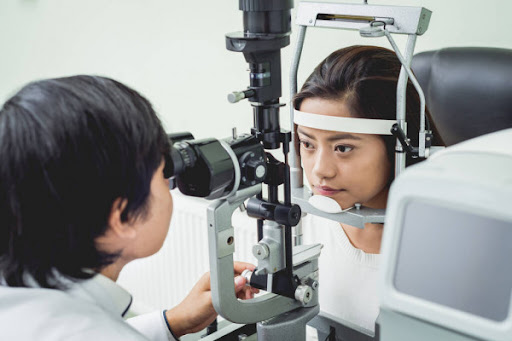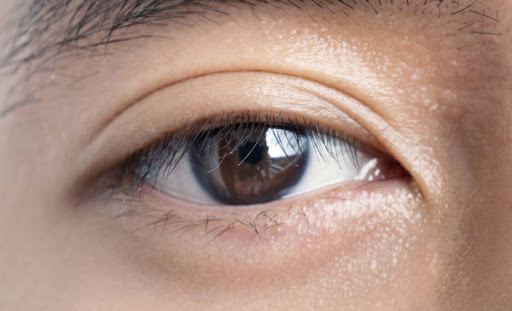How Does Central Serous Chorioretinopathy (CSCR) Occur?
The exact factors that contribute to the disease is still unknown. However, doctors have linked a few factors that may be the cause of the disease. CSCR occurs when fluid builds up under the retina. Cortisol, which is a hormone that causes leaks and inflammation and fluid build-up under the retina.
Certain medications that are categorised as corticosteroids expose the body to cortisol. This can worsen the condition in patients with pre-existing CSCR disease. Stress has also been linked to CSCR; stress causes the body to naturally produce cortisol which is likely to cause the disease to develop.
Symptoms of Central Serous Chorioretinopathy (CSCR)
The main symptom that accompanies the disease is blurred vision or an area around the central vision that becomes blurry or dark. Additional symptoms include:
-
Lines appear to be crooked
-
Objects appear to be father away
-
Dark spots in the centre of your vision
-
The colour white appears duller
In some cases, a patient may have CSCR without realising it because of the absence of the symptoms. It is possible for the fluid to build up in areas of the eye that do not surround the retina or macula, thus not affecting vision.
Who Is at Risk for Central Serous Chorioretinopathy (CSCR)?
-
Men who are in their 30s to 50s
-
Those diagnosed with an autoimmune disease (a disease in which the body attacks itself)
-
Those who have high blood pressure (hypertension)
-
Those diagnosed with a sleep disorder such as insomnia
-
Those who use steroids
Diagnosing Central Serous Chorioretinopathy (CSCR)
CSCR is usually diagnosed during a routine eye check up in which the ophthalmologist will administer eye drops to dilate the patient’s pupil. An Optical Coherence Tomography (OCT) which is a retinal scan will then be performed to enable observation of the eye at a microscopic level. An OCT also allows the ophthalmologist to take photographs of the retina and identify the presence of leaked fluid.
If the ophthalmologist notices leaked fluid around the retina, a Fluorescein Angiography will be used to determine the characteristics of the leakage. A Fluorescein Angiography is a test in which the ophthalmologist will inject a dye into the patient’s arm vein, and a special camera is used to look at the blood flow in the retina. A Fluorescein Angiography helps the ophthalmologist distinguish CSCR from other retinal diseases, allowing for an accurate treatment option.
Treating Central Serous Chorioretinopathy (CSCR)
CSCR is a self-limiting disease in which it will recover by itself in a few weeks or months and usually does not require treatment. However, there are a few treatment options for patients suffering from CSCR, especially for those enduring the disease for a prolonged period.
Treatments include:
-
Intravitreal injections – Anti-vascular endothelial growth factor medications such as bevacizumab (Avastin), ranibizumab (Lucentis), and aflibercept (Eylea) can help block the fluid leakage.
-
Medications – Mineralocorticoid antagonists such as eplerenone and aldosterone help decrease and absorb the leaked fluids while also significantly improves the vision of a patient diagnosed with CSCR.
-
Photodynamic therapy – A drug known as verteporfin is injected into the patient’s veins on the arm. The drug then travels to the eye and an ophthalmologist uses a ‘cold laser’ to activate the verteporfin in the eye which will then stop fluid leakage and prevent further leaks from happening.
At Eyecentric, we provide patients with the best treatments and medical advice to not only treat CSCR but to ensure the disease does not recur. Our experienced ophthalmologists and eye surgeons are highly skilled in treating chronic CSCR, monitoring the fluid build-up and guiding patients on their recovery journey every step of the way.
Our ophthalmologists advise those diagnosed with CSCR to adapt to a healthier lifestyle change to reduce stress levels. This can be through exercise, getting enough rest, reducing caffeine intake, avoiding alcoholic beverages, and stopping the use of drugs that contain steroids or cortisol. We at SJMC would also like to urge everyone to prioritise eye health and routine eye check-ups.
Meet our Specialist
Dr Ronald Arun Das
Designation
Consultant Ophthalmologist and Vitreo Retinal Surgeon
Dr V. Ulagantheran Viswanathan
Designation
Consultant Ophthalmologist and Vitreo Retinal Surgeon



 – 1.png)
 – 4.png)

